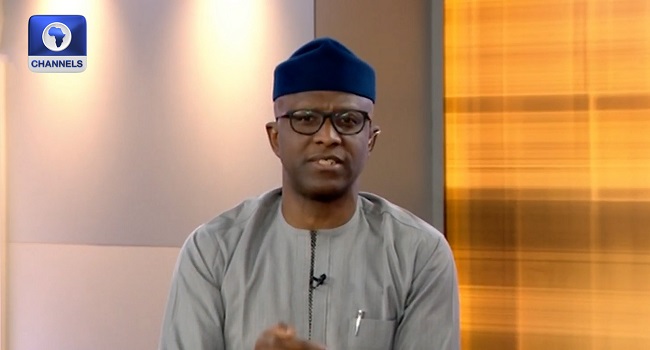Trump’s re-election: American whites seeking to retain influence isn’t necessarily bad —Akande
Former presidential spokesperson Laolu Akande has advocated for the strengthening of democratic institutions in Nigeria and throughout Africa, claiming that this is vital to limiting political elites’ excesses. Akande, a seasoned journalist who previously worked at the Philadelphia Inquirer, New York Newsday, and professor at two New York institutions, said this while appearing as a […]

Former presidential spokesperson Laolu Akande has advocated for the strengthening of democratic institutions in Nigeria and throughout Africa, claiming that this is vital to limiting political elites’ excesses.
Akande, a seasoned journalist who previously worked at the Philadelphia Inquirer, New York Newsday, and professor at two New York institutions, said this while appearing as a guest on Channels TV’s Sunrise Daily on Thursday.
Reflecting on the just-concluded U.S. elections and Donald Trump’s victory, Akande observed, “It’s important to note that the brand of politics that Mr Donald Trump represents should bring us a bit of consolation in Nigeria and Africa that it’s not really about the goodwill or the lack of it of the political elites. It’s not about that. Donald Trump, we all know who he was.
“It’s about the building of strong institutions that can withstand the excesses of the political elites, which is what America has. In Nigeria, what we need to do is to build our institutions. We should not really worry ourselves about the political elites so much. We need to build a system that will resist the excesses of the political elites,” the veteran journalist said.
He continued, “What has happened in the United States is the prevalence of race more than any other thing. It’s not necessarily a bad thing; it just reflects that the majority of Americans, who are mostly white, feel uneasy with demographic changes happening in their country.”
He noted that for many white Americans, Trump represented a response to a shifting demographic landscape. “This election, for them, was about saying, ‘We want to keep the country essentially ours.’
Despite controversies surrounding him, a significant portion of the white population voted for Trump as they felt he echoed their concerns about maintaining control over America’s identity.”
Since Nigeria’s return to democracy in 1999, Akande observed, the country has grappled with cycles of political promises from both major parties, yet with minimal ideological distinction between them. “People thought this is PDP; this is APC. There are no ideological differences between both of them,” he said, referring to Nigeria’s dominant political parties. “It’s getting to the point where our communities, outside of the political realm, need to come together and say, ‘This is not a problem that can be solved in Abuja alone.’”
Akande’s commentary touched on how Trump’s presidency, despite its controversies, helped Nigeria in specific ways. “Under President Trump, Nigeria was able to eventually purchase fighter jets that previous Democratic administrations had put barriers against,” he recalled, suggesting that even in international politics, institutional resilience and diplomatic consistency matter as much as political relationships.
For Akande, the path forward is clear: “What we need to do is build our institutions. We should not worry ourselves so much about who’s in power or their background. We need a system robust enough to resist and check the excesses of political elites.”
